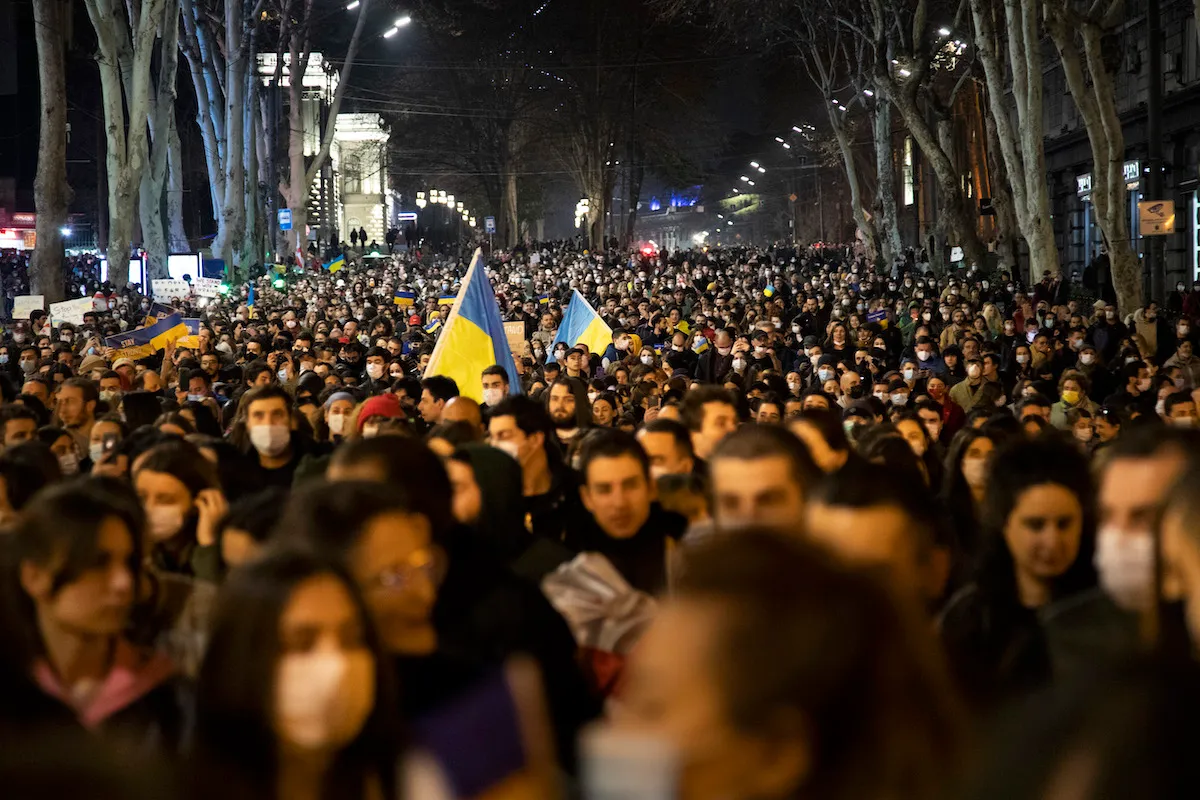Russian military forces launched a full-scale attack on Ukraine this morning, hitting multiple cities and military sites with devastating airstrikes.
It’s a scary time, and it can be hard to get a handle on what exactly is happening. Cable news and online media coverage can feel overwhelming and leave viewers and readers in need of context, let alone all the commentary flying around your various social media feeds. There’s also a lot of focus on things like how this will affect gas prices here in the U.S., and you’ll have to forgive me for not thinking that’s the most important thing right now!
Twitter is a mess, with way too many people feeling the need to share their opinions on the attack, despite clearly having no idea what they’re talking about.
Here are a few resources that I’ve found helpful today, and hopefully they can help you, too.
Historical context
If you’re looking for some context regarding the relationship between these countries, Al Jazeera has a detailed breakdown of the (relatively recent) history of the region, from political leadership to trade to oil and gas resources, with maps and charts.
Putin’s propoganda campaign
That history is important to the current situation because much of what’s happening is based on Vladimir Putin’s complete rewriting of it. Here’s a good piece from the New York Times explaining the fictional history that the Russian president has created about Ukrainian statehood, meant to justify seizing the country.
The Columbia Journalism Review has an excellent breakdown of the anti-Ukraine propaganda campaign that’s been happening in Russia recently, which includes claims of genocide.
Putin has tried to frame this attack as a “peacekeeping” mission for “liberation,” and unfortunately, a lot of Western news outlets have been slow to refute that narrative.
On the ground in Ukraine
As I mentioned, Twitter is a mess of uninformed opinions today (even more than most days, it feels like), but it’s also possibly the best way to get a direct view of what things look like in Ukraine right now. Vice has a good roundup of tweets, photos, and firsthand accounts, both from foreign journalists in the country and civilians.
Sanctions & SWIFT
President Joe Biden gave a speech this afternoon announcing that the U.S would be joining a number of other countries in imposing harsh sanctions on Russia as a means to cut the country off from the global economy. These sanctions affect trade and the ability for Russian banks to do business, but will also target wealthy Russian oligarchs with close ties to Putin.
Here’s a report from CNBC, and one from the AP, summing up the new sanctions against Russia, but it’s also important to note that sanctions have long been criticized as being ineffective.
Notably, Russia is not being ejected from SWIFT, the Society for Worldwide Interbank Financial Telecommunication, which is a cooperative of financial institutions that acts as a sort of intermediary between banks in 200 countries.
Biden insisted during his speech that the sanctions would be “more consequential” than ejecting Russia from SWIFT. Many people do not agree. Ukraine’s minister of Foreign Affairs, for one, has not been holding back:
And from Ukraine’s Prime Minister:
This tweet kicks off a great thread on why SWIFT is so important to all of this, complete with its own additional resources at the end:
This is by no means anywhere close to a comprehensive summary of what’s happening in Ukraine right now, but hopefully it helps give some context to a complex, terrifying situation.
(image: Daro Sulakauri/Getty Images)










Published: Feb 24, 2022 04:05 pm